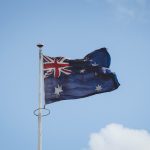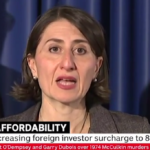A Puzzle in Search of Some Solutions
Recently, I amused myself by compiling a “Who Am I?” puzzle.
Here are the clues:
• I was once the powerful gatekeeper of knowledge; but not any more.
• Others, who don’t have my qualifications or experience, are taking over what was once my kingdom. Some days it feels as if everyone thinks they can do what I do.
• Some of us are excited by the ‘new world order’; others are threatened, and either advancing into battle or retreating.
• Critics think I’ve become way too close to society’s powerful institutions and interests, and way too removed from those I should be serving.
• A popular stereotype holds that I am arrogant, overly concerned with my own interests, and remote from the impact of my work. I, on the other hand, think that most people have no idea how difficult and demanding my job can be.
• My ranks include idealists, pragmatists, cynics, adventurers, materialists and sharks.
• My industry is rife with turf wars that are the product of history, professional and organisational demarcations, personalities and egos.
• I have an inflated idea of my own self-importance because people are often nicer to my face than my back, as happens when you wield power.
While journalists might assume they are the answer to the puzzle, so too doctors might equally well feel they were the solution; and that was the point of the whole excercise.
The reason I drew the comparison between journalists and doctors is because I write about health and am often struck by the similarities between the media and medical industries.
But then I started to think that many of the changes affecting the media and medicine are also being seen elsewhere.
We navel-gazing journalists may assume that we are the only casualties/beneficiaries of the information and communication technology revolution, but many sectors are struggling to redefine themselves and work out how to better do what they should.
One of the things that excites me about the new Foundation for Public Interest Journalism is that it is not simply about journalists or journalism, but is also seeking to engage the broader community in what we do. We can learn from what others are doing and, hopefully, vice versa.
One of the first initiatives the Foundation plans is a conference for early next year (timing, details etc all still to be arranged) that will bring together community representatives, journalists (particularly new media innovators), academics and publishers.
I hope it will be a stimulating and productive opportunity for some cross-sector learning and collaboration.
Stay tuned for more details from the Swinburne University of Technology Institute for Social Research.
Melissa Sweet is a freelance health journalist, author and moderator of the Crikey health blog, Croakey. Melissa is also Adjunct Senior Lecturer of the












